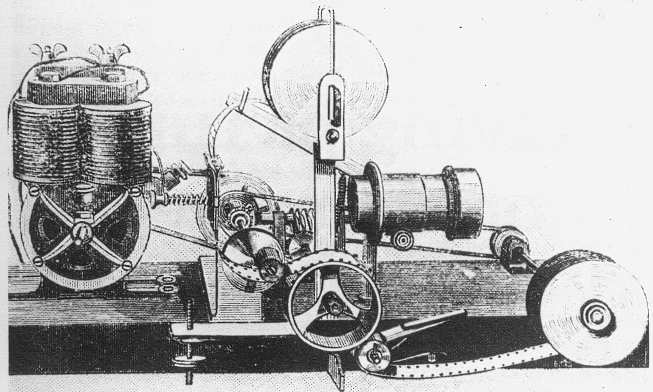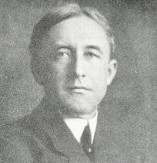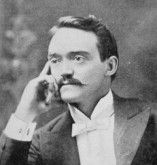You are using an out of date browser. It may not display this or other websites correctly.
You should upgrade or use an alternative browser.
You should upgrade or use an alternative browser.
A Stalwart for the Stalwarts
- Thread starter William_Dellinger
- Start date
Excellent but Bryan is too young in '92.
Crap. He was, wasn't he.
LV and I will converse and figure out something to change it to.
Adlai Stevenson I maybe?Crap. He was, wasn't he.
LV and I will converse and figure out something to change it to.
There might be something mentioned later on.What I'm curious about now is what the long-term consequences of this timeline will be for medicine, if there's any impact at all.
Also, I just noticed a problem with the opening post that I had missed before; Blaine was not Speaker of the House but Secretary of State.
Blame that mistake on me for reading a history text on the assassination to fast and it referencing his prior post as that under Grant. When we actually get enough updates to warrant a update only thread, there will be much revamping and editing of the text's to date to fit in new information, fix problems, etc.
Also, we've fixed the recent update in regards to Bryans presidency.
We welcome all comments, criticisms, and more.
For those interested, we've got a rough plan for several updates up til the 1892 Columbian Exposition, and thats a ways a way.
@EmperorNortonI
We'll look into him, seems to be a potential figure of future interest.
If anyone has comments on where they think what POD's we've had will change, or what they wouldn't change, please, tell us. We'd like discussion so we can do the best we can.
Thanks,
LV
I second Emperor Norton about using Jack (Abe) Lincoln as a possible important figure
Interlude #2
Flickering Lights At The Picture House-The Start of American Cinema

An 1896 Phantascope Machine
Excerpt from “Hot Footlights and Magic Lanterns: Vaudville's Impact on American Theater and Culture During The Gilded Age” by Professor Andrea Beaumont, University of Southern California Publishing, 2009.
This section is from Chapter Seven “The Intrusion of Clickies”
...the term itself is rather hard to find the exact taxonomy of. In his 1978 book “American Cinema And Its Vocabulary: An Examination of Slang, Terms, and Words”, Professor Denton Fitzgerald of Princeton University, gave his findings on the matter.
“The term 'clickie' most likely comes from the sound the early Phantoscopes made as they operated, making a 'click-click-click' sound. Early films were silent subjects, and music rare outside major establishments and theatres, the ever present clicking would be something easily coinable in the papers.”
Indeed, the term itself began to associate itself with the film more and more over time, with the first widespread use being found about 1903. Earlier mentions were often on posters, flyers, and the occasional newspaper article. The earliest published appearance of the word is in an 1898 newspaper advertisement for a vaudeville exposition in Atlanta, Georgia which stated “musical numbers, negro banjo serenades, and examples of the newest clickies will appear at Loew's Theater on Peachtree and Forsyth.”
Vaudeville itself was reluctant to accept the device as much more than a marvel to draw crowds. Even though most on the circuit were uninterested in appearing in clickies, others were less than welcome to the flickering marvel. Charley Ellsworth Grapewin, would be among the few to transition over later in life, though most of his early career he was “cool” to appearing on film. His reaction was better though than contemporary vaudevillian Macklyn Arbuckle (brother of Andre Arbuckle and cousin of future clickie film comedian Roscoe Arbuckle) derided the clickies as “expensive, dull, and vapid light shows for moths.” It would be financial troubles and pressure from his wife that forced him into a brief stint of acting in clickies, before his death in 1932.
However, vaudeville had to thank two men for introducing the first practical American projection system for its eventual demise.


Thomas Armat and Charles Francis Jenkins
Pioneers of American Cinematography
NEW YORK TIMES
August 22nd, 1897
Evening Edition
Columbus Dispatch
August 24th, 1897
Washington Post
August 27th, 1897

Flickering Lights At The Picture House-The Start of American Cinema

An 1896 Phantascope Machine
Excerpt from “Hot Footlights and Magic Lanterns: Vaudville's Impact on American Theater and Culture During The Gilded Age” by Professor Andrea Beaumont, University of Southern California Publishing, 2009.
This section is from Chapter Seven “The Intrusion of Clickies”
...the term itself is rather hard to find the exact taxonomy of. In his 1978 book “American Cinema And Its Vocabulary: An Examination of Slang, Terms, and Words”, Professor Denton Fitzgerald of Princeton University, gave his findings on the matter.
“The term 'clickie' most likely comes from the sound the early Phantoscopes made as they operated, making a 'click-click-click' sound. Early films were silent subjects, and music rare outside major establishments and theatres, the ever present clicking would be something easily coinable in the papers.”
Indeed, the term itself began to associate itself with the film more and more over time, with the first widespread use being found about 1903. Earlier mentions were often on posters, flyers, and the occasional newspaper article. The earliest published appearance of the word is in an 1898 newspaper advertisement for a vaudeville exposition in Atlanta, Georgia which stated “musical numbers, negro banjo serenades, and examples of the newest clickies will appear at Loew's Theater on Peachtree and Forsyth.”
Vaudeville itself was reluctant to accept the device as much more than a marvel to draw crowds. Even though most on the circuit were uninterested in appearing in clickies, others were less than welcome to the flickering marvel. Charley Ellsworth Grapewin, would be among the few to transition over later in life, though most of his early career he was “cool” to appearing on film. His reaction was better though than contemporary vaudevillian Macklyn Arbuckle (brother of Andre Arbuckle and cousin of future clickie film comedian Roscoe Arbuckle) derided the clickies as “expensive, dull, and vapid light shows for moths.” It would be financial troubles and pressure from his wife that forced him into a brief stint of acting in clickies, before his death in 1932.
However, vaudeville had to thank two men for introducing the first practical American projection system for its eventual demise.


Thomas Armat and Charles Francis Jenkins
Pioneers of American Cinematography
NEW YORK TIMES
August 22nd, 1897
Evening Edition
THOMAS ALVA EDISON KILLED IN ACCIDENT AT MENLO PARK LABORATORY
FAMED INVENTOR DIES IN CHEMICAL BLAZE
FAMED INVENTOR DIES IN CHEMICAL BLAZE
Columbus Dispatch
August 24th, 1897
INVENTOR-SON OF OHIO BURIED NEAR HIS HOME IN WEST ORANGE, NEW JERSEY.
GOVERNOR SENDS CONDOLENCES TO MRS. EDISON AND FAMILY.
GOVERNOR SENDS CONDOLENCES TO MRS. EDISON AND FAMILY.
Washington Post
August 27th, 1897
POLICE DISCOVER FRAYED ELECTRICAL WIRING CONTACTED WITH FLAMMABLE CELLULOSE
INCIDENT MOST LIKELY AN ACCIDENT
INCIDENT MOST LIKELY AN ACCIDENT

Sorry for the delay folks. School, and personal crises have meant that this had to be delayed for some time. This is the first interlude we could get done on time.
Anyways, sorry for the delay, and for awhile, it might be me just working on this due to some personal issues that WD is going through, is taking importance at this time.
Again, sorry, and I'll try to get another update or two up before New Years.
Thanks, and enjoy.
LV
Anyways, sorry for the delay, and for awhile, it might be me just working on this due to some personal issues that WD is going through, is taking importance at this time.
Again, sorry, and I'll try to get another update or two up before New Years.
Thanks, and enjoy.
LV
Not yet, but I did have plans to see it at some point.Goodbye Edison, you wanton thief. Did you see Hugo?
Edisons death will have serious repercussions, but for now, one of them is a film industry less afraid of him personally chasing them and beating them for patent money.
Which might mean Hollywoodland and the American cinema industry are going to be quite...different.
Also, since Georges Méliès doesn't have Edisons men to do early pirating of his film, he doesn't go bankrupt as soon, meaning a bit longer as a motion picture maker.
Not only is American cinema changed, but so will European cinema as well...
Making one of those articles is time consuming...I love your wikipedia article!!! Always frustrating when something is made in an ATL that I`d like to read or see.
Any other comments?
wormyguy
Banned
The political cartoonist Thomas Nast was known for his progressive attitudes towards ethnic, racial, and gender
...

Bump. This is really good. Just a few questions:
- Did Cleveland try to stop enforcing the 15th amendment?
- Is there going to be an update soon?
- Did Cleveland try to stop enforcing the 15th amendment?
- Is there going to be an update soon?
Bump. This is really good. Just a few questions:
- Did Cleveland try to stop enforcing the 15th amendment?
- Is there going to be an update soon?
Thank you kindly, LV and I are working on a global update, just a few points on where each nation is at this point in time. Not sure when we'll be done, RL and other issues are holding our attention for now.
Cleveland didn't try to stop enforcing the 15th amendment.
Might I suggest Horace Boies as an alternative to William J. Bryan in 1892? Boies was the Democratic governor of Iowa from 1890-94 in OTL. He was fiercely populistic, a proponent of the silver standard, among other things Bryan supported in OTL. Plus Boies is older (by a good three decades) than Bryan, which would probably make him more palatable to the Bourbons and urban immigrant workers. You could always pair him with some young northerner, such as the popular young Democratic governor of Massachusetts, William E. Russell.
EDIT: though it looks like you've already solved that problem? Curses, ninja'd by practically all of the fall academic semester!
EDIT: though it looks like you've already solved that problem? Curses, ninja'd by practically all of the fall academic semester!
Sorry for the long update time folks, WD and I are working on a new one, which should be ready hopefully by Monday at the latest.
A hint I will drop is some information on some information previously released, related to an ITTL book we mentioned called "Fields of Gunfire" and historical figures mentioned therein.
Anyways, again sorry to any readers still keeping up on this, but returning to college and our other projects has bitten into this.
A hint I will drop is some information on some information previously released, related to an ITTL book we mentioned called "Fields of Gunfire" and historical figures mentioned therein.
Anyways, again sorry to any readers still keeping up on this, but returning to college and our other projects has bitten into this.
Sean Mulligan
Banned
I just read a great book about the Garfield Assasination. Destiny of the Republic: A Tale of Madness, Medicine and the murder of a president by Candice Millard.
Didn't they have libel laws back then so Arthur could sue the Washington Post.
Didn't they have libel laws back then so Arthur could sue the Washington Post.
I just read a great book about the Garfield Assasination. Destiny of the Republic: A Tale of Madness, Medicine and the murder of a president by Candice Millard.
Didn't they have libel laws back then so Arthur could sue the Washington Post.
That was a very good book.
Share: